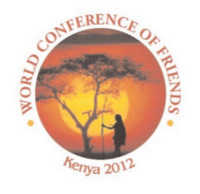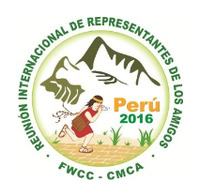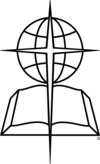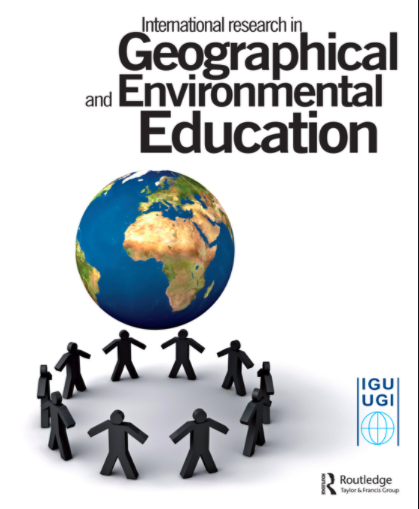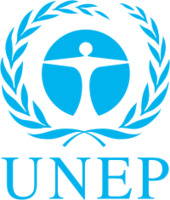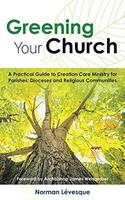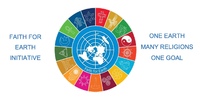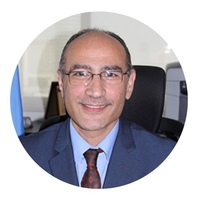Search
319 items
-
A Shared Quaker Statement: Facing the Challenge of Climate Change
This statement calls for leaders to make sound decisions with regard to climate change, and for all people to cherish the Earth for future generations. The following introductory section highlights the sense of urgency:
"As Quakers, we understand anthropogenic climate change (climate change due to human activities) to be a symptom of a greater challenge: how to live sustainable and justly on this Earth.
We recognize that the current rise of greenhouse gas emissions is leading to an unprecedented rate of increase in global average surface temperature of extreme detriment to the Earth’s ecosystems and species, including human beings.
We recognize that catastrophic global climate change is not inevitable if we choose to act urgently." -
A Quaker Response to the Crisis of Climate Change
A Quaker Response to the Crisis of Climate Change discusses how climate change and consumer waste negatively impacts disadvantage populations the most. The first two paragraphs of the introduction are stated below:
"The crisis of global climate change represents a supreme test of humanity’s collective wisdom and courage. Our immoderate use of the Earth’s resources violates the entire biosphere, threatening the lives of millions of people and the habitats of thousands of species. Many of the poorest people are already suffering a changed climate; they are
asking us all to act.
How has humanity produced this crisis? Our faith response is that prevailing social values have obscured what it means to live authentically on this Earth. In rich European countries we consume more than we need within an economic system that divides us as a society; in much that we do, we cause harm to the planet and each other without enriching our lives." -
The Kabarak Call for Peace and Ecojustice
The Kabarak Call for Peace and Ecojustice, at the World Conference of Friends in 2012, maintains that we live in times in which the Earth can not replenish itself, so we must intervene where we can. In addition, we need to look out for our fellow humans, especially those who are less fortunate than us. The following paragraph provides the introduction to the text:
"In past times God’s Creation restored itself. Now humanity dominates, our growing population consuming more resources than nature can replace. We must change, we must become careful stewards of all life. Earthcare unites traditional Quaker testimonies: peace, equality, simplicity, love, integrity, and justice. Jesus said, 'As you have done unto the least… you have done unto me'. We are called to work for the peaceable Kingdom of God on the whole earth, in right sharing with all peoples. However few our numbers, we are called to be the salt that flavours and preserves, to be a light in the darkness of greed and destruction."
-
FWCC Sustainability Minute
This minute was drafted at the FWCC World Plenary in Pisac, Peru in January 2016. These excerpts provide some salient points on sustainability/request by the Quakers who were involved with its creation:
"Invest FWCC World funds ethically. Share Quaker experiences with other faith groups to inspire them to action, especially through the World Council of Churches. Seek ways of connecting Friends worldwide that are sustainable. Facilitate dissemination of training materials on sustainability issues for Quaker leaders, pastors and teachers."
"Initiate at least two concrete actions on sustainability within the next 12 months. These may build on existing projects of individuals or monthly meetings or they may be new initiatives. We ask that they encourage Young Friends to play key roles. We ask that meetings minute the progress and results, so as to share them with FWCC and Quaker meetings. Support individuals and groups in their meetings who feel called to take action on sustainability. Support the work done by Quaker organisations such as the Quaker United Nations Office and the Quaker Council for European Affairs to ensure that international agreements and their implementation support sustainability." -
Baptists and Climate Change
Among the Series on Climate Change and Major Religions, this Baptists and Climate Change article serves as a message to all Baptists. Despite their wide range of views and beliefs on environmental issues, the authors urge individuals to come together and take action to care for creation as God had intended. The following excerpt highlights the current division among members:
"The apparent contradiction between the Biblical ideals of dominance and stewardship is one of many divisions in Baptist discussions of climate change/global warming. Among more liberal American Baptist churches, members said in recent interviews, hardly anyone is a global warming 'skeptic.' But among Southern Baptists, a backlash against climate leaders is ongoing." -
On Global Warming
This first half of this message posted on the Southern Baptist Convention website provides some key time frames with regard to ongoing climate issues. The second half focuses on responses from/actions taken by Southern Baptists. An additional overarching theme is humans responsibility for care for creation and, in particular, the poor. -
The United Church of Christ and Climate Change
This article from the United Church of Christ points to specified time periods/salient highlights of their responses to various environmental issues over the past 15 years. The United Church of Christ recognizes climate and energy issues as moral and ethical issues that affect everyone. However they also acknowledge that it most negatively impacts those with the least access to resources. -
A Resolution on Climate Change 2007 GS26
In 2007, The United Church of Christ put forth a resolution on climate change. They acknowledge the negative impact of global warming and urge governing bodies to support measures that reduce green house gas emissions. The following is an excerpt from the 2007 resolution on climate change:
"WHEREAS, the predicted impact of global warming will have a disproportionate impact on those living in poverty, least developed countries, the elderly and children and those least responsible for the emissions of greenhouse gases;
THEREFORE, BE IT RESOLVED that the Twenty-sixth General Synod of the United Church of Christ admits Christian complicity in the damage human beings have caused to the earth's climate system and other planetary life systems, and urges recommitment to the Christian vocation of responsible stewardship of God's creation, and expresses profound concern for the pending environmental, economic, and social tragedies threatened by global warming, to creation, human communities and traditional sacred spaces;
WE FURTHER RESOLVE that the Twenty-sixth General Synod of the United Church of Christ urges the United States Government to respond to global warming with great urgency and firm leadership by supporting mandatory measures that reduce the absolute amount of green house gas emissions, and in particular emissions of carbon dioxide, to levels recommended by nationally and internationally recognized and respected scientific bodies;" -
World Council of Churches Endorses Fossil Fuel Divestment
This message from the World Council of Churches (WCC) discuss their endorsement of fossil fuel divestment (2014 Geneva, Switzerland). WCC is one of a growing number of religious groups to support the fossil fuel divestment movement. The introduction is stated below:
"The Central Committee of the World Council of Churches (WCC), a fellowship of over 300 churches which represent some 590 million people in 150 countries, endorsed fossil fuel divestment this week, agreeing to phase out its own holdings and encourage its members to do the same." -
Care for Creation and Climate Justice
The World Council of Churches provides a brief description of their stance on care for creation and climate justice on their website. The following is an introductory statement, urging individuals forgo over-consumption and greed:
"The present world development model is threatening the lives and livelihoods of many, especially among the world's poorest people, and destroying biodiversity. The ecumenical vision is to overcome this model based on over-consumption and greed." -
WCC augments Vatican’s call to address climate emergency
The World Council of Churches (WCC) calls on those in position of power to listen to the urgent protests and take action accordingly. The following is an excerpt from the article, indicating WCC's stance of solidarity with Vatican’s Dicastery promotion of integral human development:
“When we hear the call from the youth and children on the street, the facts from scientists with all the knowledge, the witnesses from indigenous people of the world and the cry from the Earth we must come together as one humanity in a hopeful action of transformation,” said Grape. “In this struggle for climate justice, the WCC is happy to be working in the same direction as the Vatican’s Dicastery for Promoting Integral Human Development. We work together in an open ecumenical spirit to end climate injustice and move to a more peaceful sustainable future.” -
Climate Change
The World Council of Churches calls individuals to modify their consumer lifestyle for the greater good - to improve shared environmental conditions for all and with less negative impact among the poor. This excerpt provides a sense of urgency to act to reverse the threat of climate change:
"The urgency of the threat of climate change requires our generation to take immediate action and go beyond simple declarations and statements. New alternative models of life are called for. We challenge all people to move towards a style of life that derives its quality from the attentive enjoyment of nature and human relationships, from mutual care, dependence, trust and solidarity instead of the illusions of individual autonomy and material wealth, from spirituality and feelings of community, connectedness and intimacy instead of one-dimensional self-centredness. We draw strength from insights gained from the rich, community- oriented and simple lifestyles of indigenous and other marginalized communities. We are conscious of the significant contribution these communities, with their low carbon economies, deliver to the stabilization of the climate. We recommend the creation of 'just, participatory, sustainable and sustaining communities' for mutual support and call upon the churches and authorities to join them on this journey with reflection and practical support." -
The Pope on Sustainability
An article written in Science Magazine covers the Pope's take on sustainability and environmental accountability. The Pope has inspired other religious leaders to also raise their voice about environmental issues like combating climate change. The introduction of the article notes that:
"The problems that motivate the Vatican are no different from those that concern the scientific community: depletion of nonrenewable resources, loss of ecosystem services, and risks from changing climate. But what the Vatican contributes is the rationale for taking action: because it is our moral responsibility to bequeath a habitable planet to future generations". -
How do we Communicate Environmental Ethics? Reflections on Environmental Education from a Kuwaiti Perspective
Dr. Khadija al-Naki, an educational researcher, discusses Islamic thought in relation to environmental education. Comparing Islamic teachings with Western environmental ethics, al-Naki opens a conversation on how to develop an environmental curriculum in Islamic education systems. This article leaves the reader questioning the role of education in the environmental movement.
Published in the journal International Research in Geographical and Environmental Education. -
Lutheran, Anglican, Episcopal leaders offer pastoral message on climate change
This message from leaders of the Evangelical Lutheran Church in America (ELCA), Evangelical Lutheran Church in Canada, Anglican Church of Canada, and The Episcopal Church, emphasizes that all individuals have contributed to climate change. However, they offer hope that God himself has not given up on care for creation. They urge individuals to discern opportunities to curb energy use, decrease carbon emissions, and reduce consumer waste. -
Episcopal Church, Church of Sweden, ELCA commitment: "Sustaining hope in the face of climate change"
The heads The Episcopal Church, the Church of Sweden, and the Evangelical Lutheran Church in America (ELCA) signed a joint commitment to climate statement. The following are five salient points from their commitment:
"1) Advocate for national and international policies and regulations that enable a swift transition from dependence on fossil fuels to clean, safe, renewable energy, and for economic systems that are fair and just.
2) Sustain an interfaith, international conversation around climate change and social and economic justice while working to keep climate change in the public’s attention.
3) Encourage our faith communities to deeper theological reflection on the moral and ethical response to climate change, and then to make public witness about climate change through advocacy at the local, national and international levels.
4) Invite our communities to prayerfully consider how their own actions, lifestyle choices – particularly our energy consumption -- affect the environment.
5) Offer our communities continued opportunities to learn about climate change and the universal church’s response to this crisis." -
A Spiritual Dimension and Environmental Education: Buddhism and Environmental Crisis
Kongsak Thathong writes about the environmental crisis and how a Buddhist environmental ethic may help in solving environmental problems. Buddhism may also help in education; the Lord Buddha encouraged environmental education, and learning about the Earth and its resources may protect it from the greed and selfishness that humanity spreads. Buddhism's three tenets of Right Behavior, Mind, and Understanding are virtues that people can change in themselves to care for the Earth.
-
Coronavirus, Faith Leaders, and Sustainable Development
An event organized by the United Nations Environment Progamme and the Swedish International Development Cooperation Agency led a digital conference to discuss innovation to combat the environmental crisis in light of the COVID-19. The Faith for Earth Initiative calls for interfaith collaboration to combat environment problems. In the midst of a global crisis, the UN encourages this time to be used for innovation and educational progression. This quote from Iyad Abumoghi summarizes the mission:
“'The coronavirus pandemic is focusing hearts and minds, says the director of Faith for Earth, Iyad Abumoghli. “Faith for Earth is mobilizing youth, the leaders of faith-based organizations, as well as scientists and theologians to work together for innovative change to speed up sustainable development.'” -
Zero Net Energy Grants
The Mennonite Creation Care Network published information on how a Mennonite Church congregation can qualify and get approved for a grant from the Pam De Young Net Zero Energy Fund. The grant would allow congregations to install solar panels, car charging stations, or other sustainable improvements. Any Mennonite Church USA congregations willing to become more sustainable are eligible for the grant. -
Greening Your Church
"A Practical Guide to Creation Care Ministry for Parishes, Dioceses and Religious Communities," as this book's subtitle reads, author Norman Lévesque identifies and outlines strategies to creating environmentally friendly congregations. In 104 pages, learn about the theology of creation care ministry and how to green-ify your community to reduce impacts on God's creation. ISBN: 9782896466368 -
Simpler Living, Compassionate Life
Simpler Living, Compassionate Life features essays by Cecile Andrews, Henri Nouwen, Frederick Buechner, and many more authors. This collection touches on a variety of topics surrounding humanity’s relationship to our earthly home. In addition to the essays, the book includes 70 pages of additional material to help guide communities as they naviagate this book, making it a wonderful choice for book groups. -
Engaged Organizations: Lakeside Chautauqua
Lakeside Chautauqua is a community in Ottawa County, Ohio that borders on part of the Chautauqua Trail along Lake Erie. This organization is dedicated to preserving Lakeside's heritage since it's inception in 1873. While fostering Christian values, Lakeside provides opportunities for various intellectual, physical, and cultural experiences. Also included are sub-organizations that, among other things, are dedicated to knowledge of the environment, sailing, wooden boats, and tennis. The Lakeside Environmental Stewardship Society (LESS) is a group that coordinates educational programs and field trips to raise environmental awareness. These community group leaders hope to increase awareness of the environment for Lakeside Chautauqua guests and residents, as well as foster increased environmental activism as people return to their homes after their visit. -
Caring for Creation: Corner of Creation (Madison Christian Community)
Madison Christian Community offers a number of helpful resources for faith communities. One of the items is a “study-action” program that can support communities in reclaiming their sense of place. It is called “Caring for Creation: Corner of Creation.” -
United Nations Environment Programme Faith for Earth Initiative
Launched in November of 2017, the UN Environment Faith for Earth Initiative recognizes the social, economic, moral, and environmental influence of faith communities, and established the initiative to "strategically engage with faith-based organizations and partner with them to collectively achieve the Sustainable Development Goals (SDGs)." As stated on the initiative's webpage: "Faith for Earth has three main goals: to inspire and empower faith organizations and their leaders to advocate for protecting the environment, to green faith-based organizations’ investments and assets to support the implementation of SDGs, and to provide them with knowledge and networks to enable their leaders to effectively communicate with decision-makers and the public." -
Dr. Iyad Abumoghli
Dr. Iyad Abumoghli has more than 34 years of experience with international organizations, the private sector, and scientific institution. Dr. Abumoghli’s expertise focus on strategic planning, sustainable development, water resources management, and knowledge and innovation. Currently, Dr. Abumoghli is the Lead Principal Advisor on Engaging with Faith-Based Organizations at UN Environment. Previously Dr. Abumoghli held several leading positions including the Regional Director and Representative of UN Environment in West Asia 2012-2017, Director of Knowledge and Innovation at UNDP’s Regional Office in Cairo 2009-2012, Senior Environment Advisor at UNDP’s Sub-Regional Resource Facility in Beirut 2006-2009, Global Practice Manager for the Energy and Environment Group in New York 2003-2006, Assistant Resident Representative of UNDP in Jordan 1997-2003.
Dr. Abumoghli adopts a holistic multi-sectoral approach to development ensuring cross-thematic integration with internal and external partners.
Dr. Abumoghli holds a doctorate degree in Bio-Chemical Engineering from the University of Bath/UK, an outstanding graduate of the Virtual Development Academy – Johns University, and a BA in Chemical Engineering from University of Jordan.



